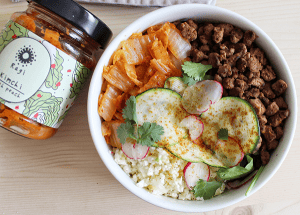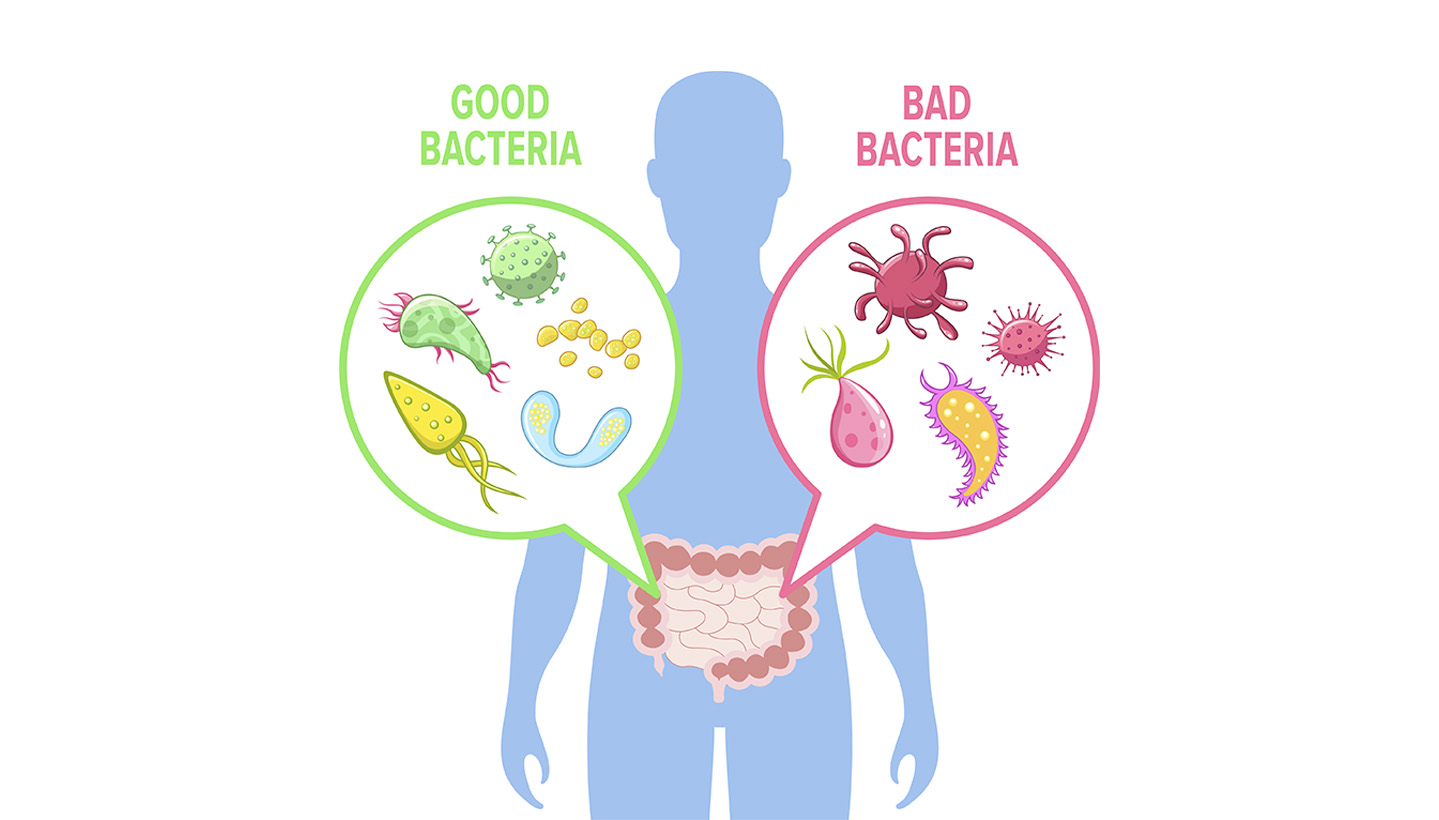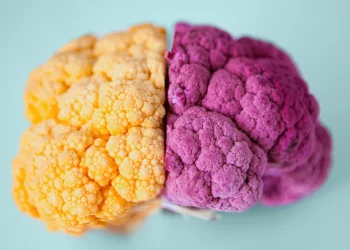What happens in your body when you eat fermented foods?
Believe it or not, you’re not the only one eating when you swallow a meal. In fact, your gastrointestinal tract is home to billions of microbes that help break down food. On average, we eat 60 tons of food in our lifetime. The beneficial bacteria that are part of your microbiota are picky eaters. In fact, they only thrive if they are provided with certain nutrients containing fermented foods.
When you eat sugary, industrially processed foods, your good gut bacteria don’t have the fuel to prevent the overpopulation of harmful bacteria, which can wreak havoc and cause digestive problems and disease. But when good bacteria populate your gut, these microscopic organisms work day in and day out for your health – and you can increase their productivity by eating fermented foods.
What exactly are fermented foods?
Fermented foods are enjoying a rise in popularity because of their health benefits. In fact, some fermented foods act as real nutritional assets for our health. The fermentation process transforms food into raw materials thanks to microbes (bacteria and fungi). People have used fermentation for preservation purposes for ages. Without bacteria and fungi, food preservation through fermentation would be impossible.
Examples of fermented foods

Certain fermented foods can increase the number of beneficial bacteria in the gut due to microorganisms (probiotics). Probiotics have many health benefits, including improved digestion, better cognition, healthy immunity and even weight loss.
Here are 8 fermented products that improve health and digestion:
– Kefir
– Tempeh
– Natto
– Kombucha
– Miso
– Kimchi
– Sauerkraut
– Unpasteurized apple/cider vinegar
Benefits of fermented foods
Healthy digestion and weight management
The process of lacto-fermentation allows lactic acid bacteria to “pre-digest” foods. They create enzymes that break down some of the large molecules difficult for our digestive system to absorb. Thus, it limits certain compounds (oligosaccharides) that sometimes cause digestion problems. It also reduces sugars, thus lowering the glycemic index of foods. Fermented kimchi has been scientifically proven to reduce insulin resistance, blood pressure and body weight. These are the symptoms that potentially lead to the development of type 2 diabetes.
Reduction of inflammation
Fermented vegetables can help reduce intestinal inflammation, symptoms of chronic gastrointestinal diseases and certain food intolerances. Kefir improves digestion and lactose tolerance in adults with lactose maldigestion. Did you know that the consumption of antibiotics is linked to intestinal inflammation? Antibiotics severely damage the gastrointestinal microflora because they kill harmful bacteria and good bacteria, leaving your body vulnerable to viruses. Eat a diet rich in whole grains, vegetables and fermented foods to restore your body after antibiotic treatment.
Improved nutrient bioavailability and detoxification of the body
Fermentation increases the nutritional value of food, with microorganisms creating various nutrients such as vitamin C, B vitamins (including B12) and vitamin K. When bacteria break down large molecules and release the nutrients, they improve the bioavailability of nutrients and minerals in plant foods. In addition, some toxic substances are neutralized during fermentation, such as cyanide, phytates and saponins.
Strengthening the intestinal flora for better immunity
Microbial fermentation transforms food into nutritionally and functionally beneficial microorganisms (probiotics). They promote the growth of beneficial bacteria (prebiotics) in the gut and bioactive components (biogens). They can strengthen your body’s natural resistance to viruses. It looks like COVID will be with us for a while, so stock up on fermented foods!
Support stress management
Research suggests that the gut’s bacterial composition (microbes) affects our state of mind by influencing the immune system, nerve signals and the neurotransmitter serotonin. This is why the gut is often referred to as the “second brain” in popular literature. Modern studies show the potential value of fermented products on mental health and resilience against depression in particular.
Quantity of fermented foods
Although there are currently no official guidelines on how often you should consume fermented foods, adding a few servings daily can already be beneficial. Start with one or two servings per day and gradually increase. Consumption of foods such as yoghurt, kefir, fermented cottage cheese, kimchi and other fermented vegetables, plant-based brine drinks and kombucha tea increased overall microbial diversity; the effects being more pronounced with larger portions. “This is an amazing finding,” said Justin Sonnenburg, PhD, of Stanford, based on the results of the study comparing a diet rich in fermented foods for 10 weeks to a diet restricted to fermented foods. Fermented products have been shown to enhance the diversity of the microbiome and improve immune responses.
Quality of fermented foods
Not all fermented foods provide your gut with live bacteria. Many producers process food after fermentation and kill live microbes for longer shelf life – for example, cheese, yoghurt or pasteurized pickles. That is why check the labels when shopping, as not all fermented foods contain live microorganisms. Ragi fermented products, which you can buy at Allcook, are fermented and directly packaged in hygienic conditions without pasteurization.
Tips for incorporating them into your daily routine
– Add kefir to your morning meal or snack, pairing it with fresh fruit. Kefir is also a great addition to smoothies or a bowl of muesli.
– Add a little cabbage or lacto-fermented kimchi to wraps, sandwiches, soups or salads as a meal condiment. Don’t heat the kimchi to keep as many bacteria alive as possible.
– Replace ketchup or hot sauce with kimchi.
– Consider including kimchi juice in your cold soups.
– Replace your sweetened beverages with kombucha or kefir.
– Combine fermented foods (probiotics) with whole grains and vegetables (prebiotics).
The hardest part is making sure you always have fermented products at home. Sign up for a weekly delivery from Allcook kitchen to ensure an uninterrupted delivery of fermented products for your gut and brain to enjoy 🙂






